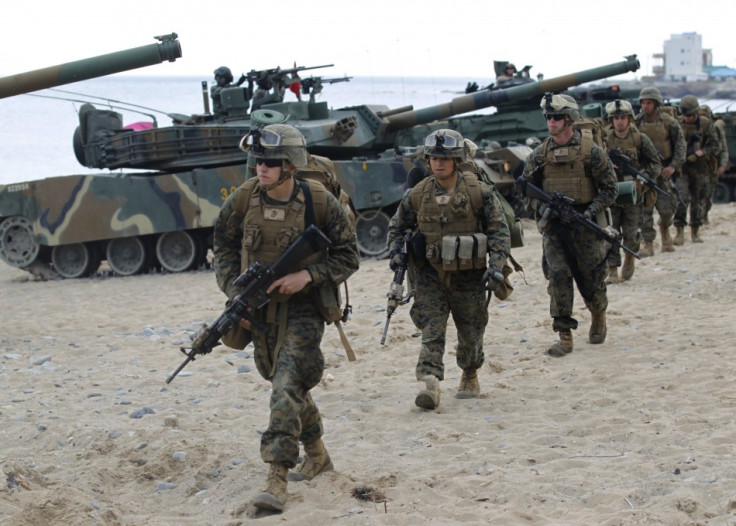Data on 40,000 US Soldiers Stolen in South Korea Cyber-Attack

Hackers who coordinated a series of cyber-attacks on South Korea claim to have obtained the personal details of 40,000 actively serving US soldiers and leaked them online.
Cyber-attacks were staged on Tuesday, 25 June, marking the anniversary of the start of the Korean War in 1950. The hackers compromised the websites of South Korea's presidential office and several local newspapers.
The unidentified hackers claimed to have obtained personal data belonging to two million South Korean workers and 40,000 US military troops, including that of some 28,000 troops currently stationed in the country.
"We have seen the sites where the details were posted and clips that supposedly capture the process of hacking into web sites," an unnamed worker for South Korean online security firm NSHC said.
The hacked data reportedly contains the birth dates and ranks of members of the 25th Infantry Division and 3rd Marine Division.
The official websites for South Korea's presidential office and Prime Minister were both taken offline for six hours by the attacks, according to Reuters.
Online activism group Anonymous has denied responsibility for the attacks against South Korea, via a tweet written by Anonymous member @anonsj. However, the collective's "OpNorthKorea" was launched on Tuesday, bringing down the websites of several North Korean media organisations using distributed-denial-of-service (DDOS) attacks.
We didn't Hack any #SouthKorea websites. #Anonymous
— Anonymous (@Anonsj) June 25, 2013
North Korea, which has previously been implicated in cyber-attacks against the South, has also denied responsibility.
Rik Ferguson, of security research firm Trend Micro, said in a statement sent to IBTimes UK that, despite differences between the attacks on North and South Korea, "everything had been done" to "brand" the cyber-attacks against South Korea as the work of Anonymous:
"The attacks on the North Korean targets were expected as a part of Anonymous' OpNorthKorea. As is often the case, the campaign had been announced in advance and the attack appeared to be widely successful with many major North Korean web sites becoming unavailable.
"The attacks on South Korean sites appear somewhat different, less about denial of service and more about access, exploitation and defacement.
"Everything has been done to brand the video as an 'Anonymous' attack," Ferguson continued. "However one of the most vocal Twitter users associated with Anonymous activity in South Korea, @anonsj, has disavowed any attacks on South Korean web sites."
© Copyright IBTimes 2025. All rights reserved.






















